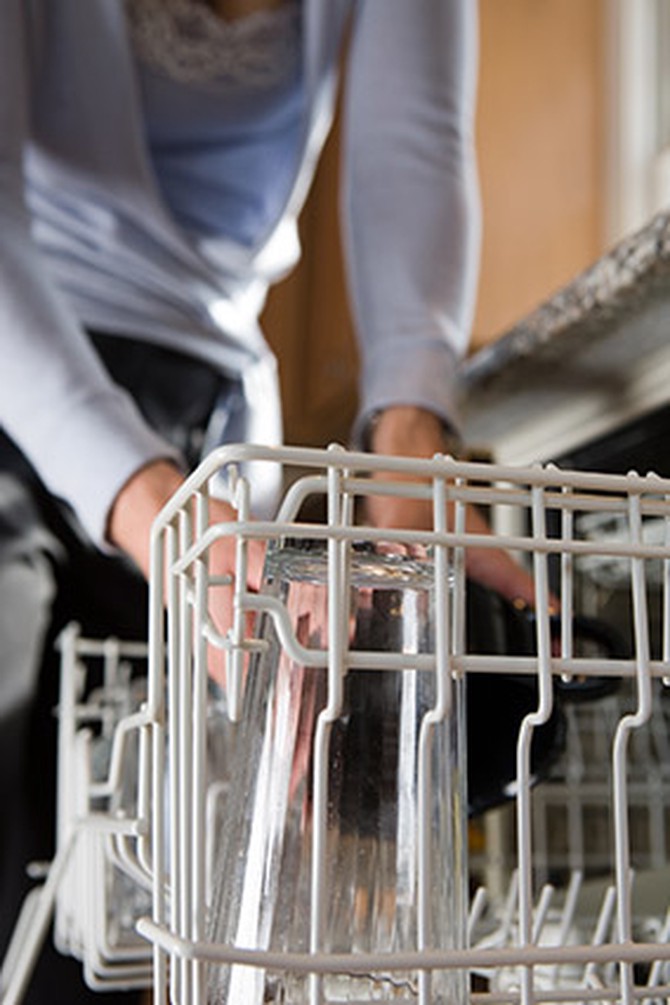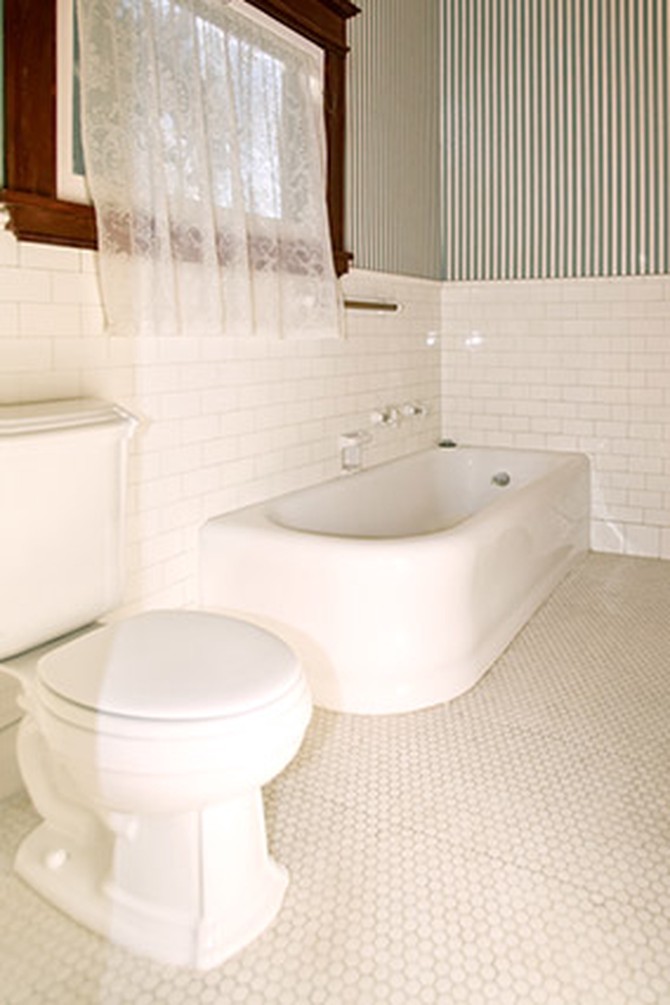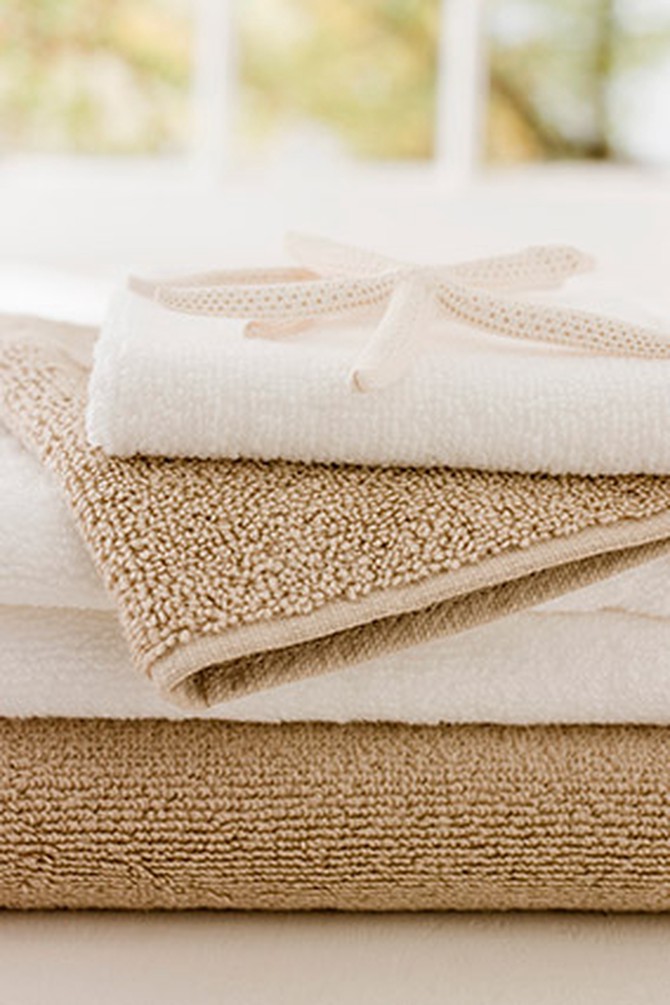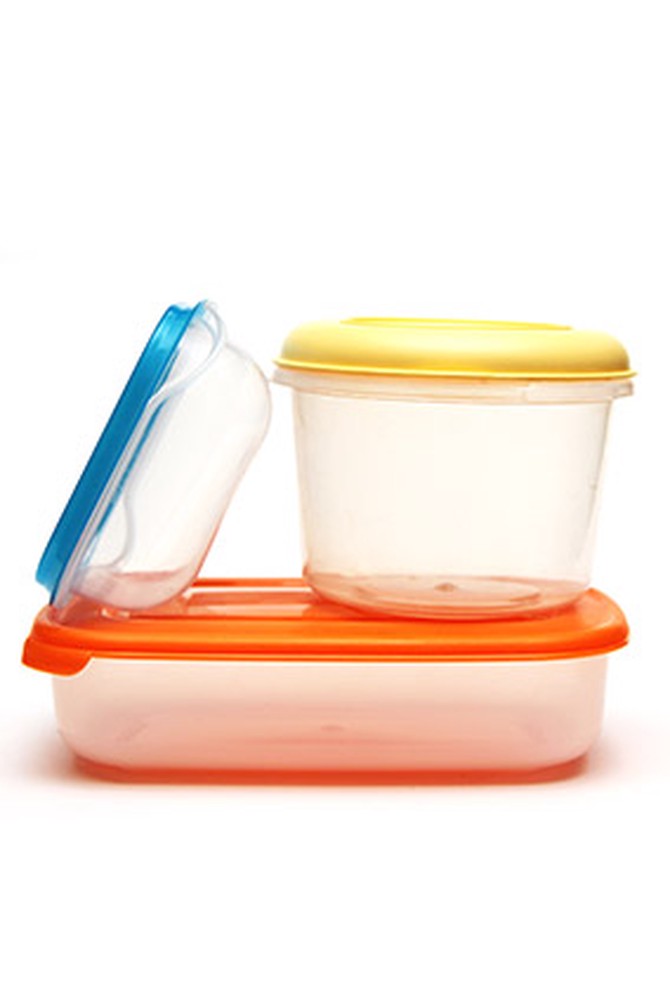Your Most Embarrassing Cleaning Questions—Answered!
Jolie Kerr, cleaning expert and author of the new book My Boyfriend Barfed in My Handbag...and Other Things You Can't Ask Martha has seen it all, from stinky dishwashers to lipstick on your collar.
By Lynn Andriani

Photo: Thinkstock
Why does my dishwasher smell so bad, if all it does is clean dishes?
Your mother-in-law offers to help you load the dishwasher, pulls the door open and—ugh, that smell. How is it possible, when there's not even anything in there? There are two reasons, says Jolie Kerr, who covers all kinds of cleaning-related queries for Deadspin and Jezebel. First, water and excess soap collect in and around the gasket; together, they create a breeding ground for mold, which feeds off of soap—and mold is what causes that mildew-y smell. Second, bits of food tend to collect in the bottom of the dishwasher over time. The fix: First, remove any food you see, and then fill the bottom of the washer with about half a gallon of white vinegar (which seems to have no bounds when it comes to amazing uses). Run the dishwasher (empty) and the smell should go away.

Photo: Thinkstock
I'm about to go into a meeting and just realized I have lipstick on my shirt.
Lipstick on teeth: no problem (provided you notice it before anyone else does). Lipstick on clothing, however, can be a bit trickier. While foundation, powder and liquid blusher will respond to liquid soap dabbed on with a washcloth or sponge, lipstick and mascara require a cleaner that can attack oil-based stains. Kerr suggests keeping a secret stash of a solvent, such as Shout, Lestoil or even Pine-Sol, around; though your garment will probably require a full washing once you get home, a light application of the solvent will act as a quick-fix spot treatment to remove, or at least mute, the color.

Photo: Thinkstock
How do you get car seat belts clean after someone is carsick?
The critical thing about cleaning seat belts, Kerr says, is that you can't use typical cleaners such as white vinegar, because they may damage the material and make the belts less effective. Before you pull back on the road, Kerr suggests wiping belts down with baby wipes, which will remove stains and eliminate any lingering odors.

Photo: Thinkstock
I can't get the back of my toilet clean—and even though I can't see it, I know it's not pretty.
To prepare for a big party, you've wiped down the bathroom counter, swept the hair off the floor and scrubbed the inside of the bowl. If only cleaning behind the toilet was so easy; this area can harbor some seriously off-putting smells (especially if there's grout). To get back there, take two or three paper towels and roll them up tightly, as if you're rolling a cigar, dip them in a bucket of cleaner (like Scrubbing Bubbles). Then, while facing the toilet, place the roll of towels behind it; take one end in either hand, and "floss" the back base. Let the cleaner sit for five or ten minutes, and "floss" the base again, this time with dry paper towels, which should also remove lint.

Photo: Thinkstock
How do I get the funky smell out of my (just-washed) bath towels?
Handing an overnight guest a neat stack of laundered bath towels seems like such a nice gesture—but not if the linens give off a musty smell as soon as your visitor uses them to dry off. The problem, says Kerr, is that you're using too much detergent when washing your linens, and the preset rinse cycle on your washing machine is not long enough to get all the soap out. So while your towel may smell fresh after it's washed and dried, once it gets wet again (after a shower, say) and is left in the dark bathroom, mold begins to grow. (It turns out mold likes soap.) The fix: Wash the towels with no detergent and a cup or 2 of white vinegar; this will get the soap out (and have the added bonus of cleaning your washing machine). Then, going forward, use less detergent on your towels.

Photo: Thinkstock
I forgot I had stashed some plastic food containers in the oven, and then I turned the oven on and...
now there's melted plastic all over the oven.
Kerr hears this sad tale all the time. But if you do make this gaffe (and feel a little silly about it), heat the oven to a very low temperature—200 degrees is the lowest most ovens go—so the plastic is pliable, and then scrape it off. (You can also use ice to freeze it, but this is trickier because the ice will start to melt, plus you'll have to disconnect the gas from the stove first.)
Next: The 9 most disgusting places in your home
Kerr hears this sad tale all the time. But if you do make this gaffe (and feel a little silly about it), heat the oven to a very low temperature—200 degrees is the lowest most ovens go—so the plastic is pliable, and then scrape it off. (You can also use ice to freeze it, but this is trickier because the ice will start to melt, plus you'll have to disconnect the gas from the stove first.)
Next: The 9 most disgusting places in your home
Published 12/31/2013

